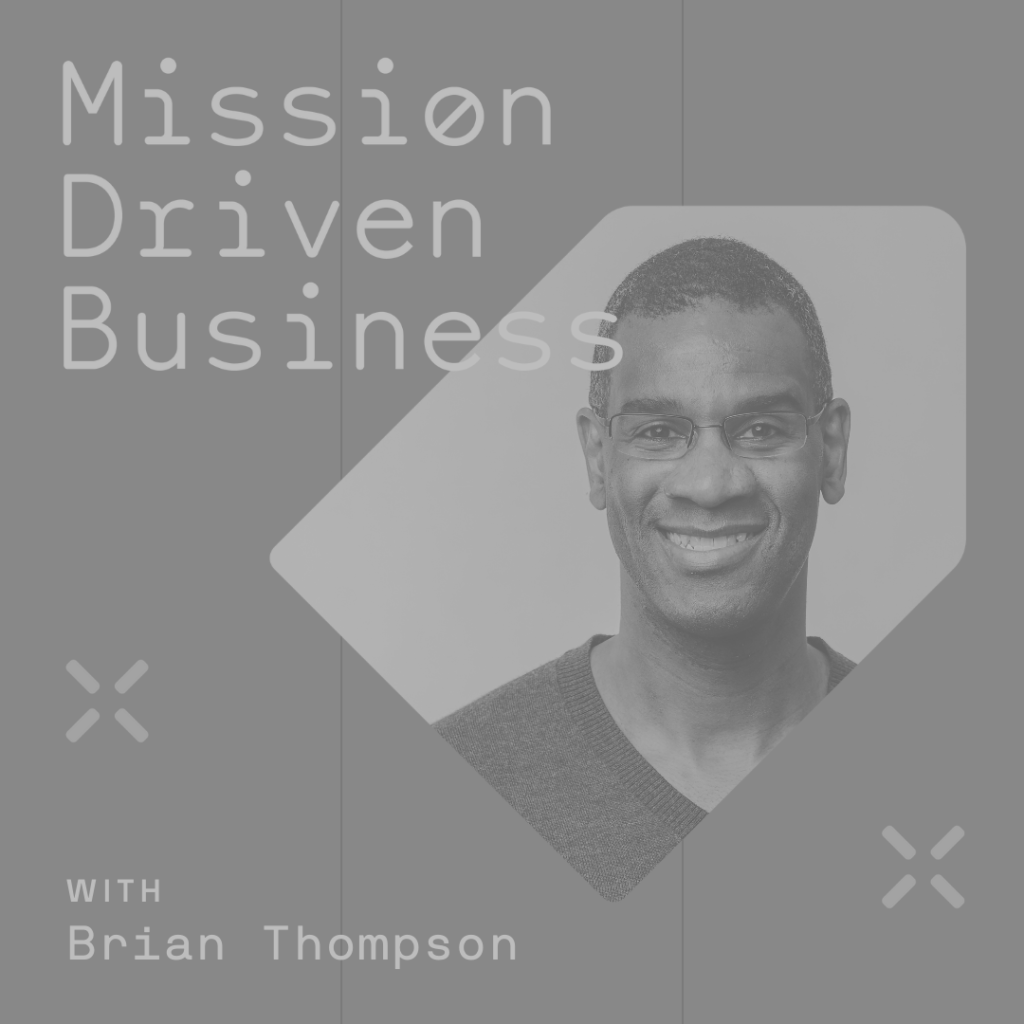In this very special episode, host Brian Thompson opens up like never before. He shares why he started his own mission-driven business, and some of his highs and lows he encountered in the process. You’ll also learn the difference between strategy and tactics, and why entrepreneurship isn’t necessarily more risky than being a W-2 employee. If you’ve wanted to know more about Brian and his own story, this episode, hosted by Latarsha Stewart, is for you.
Episode Highlights
Mission-driven businesses serve.
For Brian, mission-driven businesses have both a purpose motive and a profit motive. Brian wants clients and listeners to know that you don’t have to run a non-profit in order to run a business that does good and makes an impact.
“The underlying current of all this is that mission-driven businesses serve. And you can make money and make a good living by serving,” he said. “That’s been my focus and why I try to meld these two together. Because you don’t have to do one or the other. You can do both.”
Things happen at the right time.
Brian had been working at a tax law firm when everything in his personal and professional life shifted. The partners of the law firm split up; his long-term relationship ended; and marriage equality was making huge strides. Brian ended up using the uncertainty to forge the future he wanted.
“So you have this moment in time to say — What do you actually want to do? What do you want to do with your life?” he said. “Having the support of my friends and my ex-husband and all that just came together at the right time.”
Find your niche.
During this time of uncertainty, Brian decided to start a financial planning firm focusing on LGBTQ couples. But he soon learned that his core audience was a target market and not a niche.
When looking at his client base, Brian realized his roster included a lot of business owners who were coming to him because of his background in tax law — and he enjoyed the complexity of meeting their needs. So he redefined his business focus as helping LGBT business owners who run mission-driven businesses.
At the same time, Brian is passionate about closing the racial wealth gap, which is 3:1 for people of color who are entrepreneurs versus 11:1 for non-business owners. He sees his niche and business as an opportunity to fulfill that motivation as well.
“You have to serve a specific amount of people, so you should make sure that those people are the people that you want to serve and the people that you want to hang out with and the people that you want to talk to,” Brian said. “It’s a very significant mind shift that really freed me up and allowed me to really enjoy the process.”
Let go of perfectionism.
One of the hardest lessons Brian had to learn on his entrepreneurial journey was to let go of his perfectionism and live in the moment.
“I had to do it out of necessity because nothing was perfect. And nothing was exactly the way that I wanted,” Brian said. “I learned how to adjust and pivot and navigate. I had to be okay and get okay with things not being perfect, and things needing to just go.”
Now, Brian is used to constantly trying things out and learning from them. He resonates with the metaphor that running a business is like building an airplane while trying to fly it.
“You just don’t either have enough time or energy or space to try to do everything perfectly,” he said. “Which is actually a huge relief for me to realize it actually doesn’t need to be perfect, and things still happen, and things still go.”
Resources + Links
- Mission Driven Business episodes with Mike Michalowicz and Ron Saharyan of Profit First Professionals
- Brian’s Twitter: https://twitter.com/BrianFinancial
About Brian and the Mission Driven Business Podcast
Brian Thompson, JD/CFP, is a tax attorney and certified financial planner who specializes in providing comprehensive financial planning to LGBTQ+ entrepreneurs who run mission-driven businesses. The Mission Driven Business podcast was born out of his passion for helping social entrepreneurs create businesses with purpose and profit.
On the podcast, Brian talks with diverse entrepreneurs and the people who support them. Listeners hear stories of experiences, strength, and hope and get practical advice to help them build businesses that might just change the world, too.
